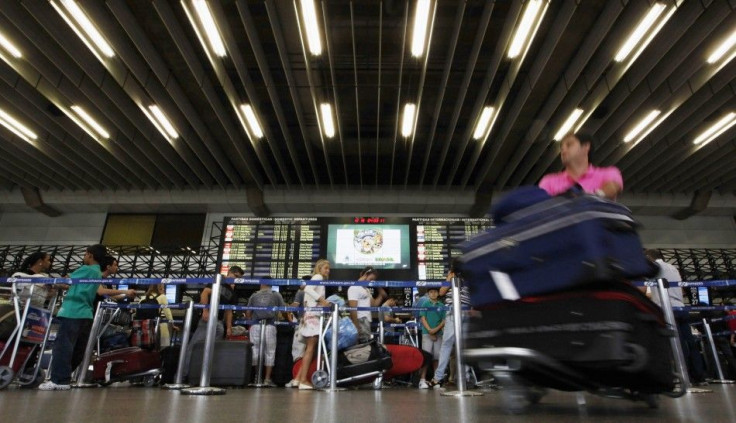Brazil Privatizes Three Major Airports

The Brazilian government has raised about $14-billion through the privatization of three of its major airports, including the Guarulhos airport terminal at Sao Paulo, which is the nation’s largest.
The total amount raised was more than four times the cash the government was seeking.
Guarulhos alone was sold for $9-billion to a consortium of Brazilian and South African investors.
Bloomberg reported that the consortium led by Investimentos e Participacoes em Infra-Estrutura SA, which includes Airports Co. South Africa as a member, won the rights to operate Guarulhos for 20 years.
Guarulhos airport handles about 7-million passengers yearly.
The other airports were the President Juscelino Kubitschek airport in the capital Brasilia (which was sold to Brazilian and Argentine investors); and the Viracopos airport in Campinas (sold to French and Brazilian interests).
According to reports, these three terminals account for almost one-third (30 percent) of all passenger traffic in Brazil; and 57 percent of all air cargo in the nation.
The government sold the assets at an auction in an effort to modernize and overhaul its air transport infrastructure ahead of two huge sporting events: the World Cup and the Olympics.
Air travel has boomed in Brazil over the past decade, coincident with the country’s surging economy -- passenger traffic surged 118 percent between 2003 and 2011, according to the government figures.
However, its airports are aging and crumbling, and in desperate need for improvements if Brazil wants to ascend to world-class status.
Already, officials of FIFA, the governing body of soccer which will stage the World Cup, has complained that Brazil’s infrastructure will not be able to cope with the half-million people expected the attend the tournament.
Paulo Godoy, head of ABDIB, an association representing companies investing in infrastructure in Sao Paulo, told Bloomberg: “This breaks a paradigm. New frontiers will surge for air transport, and aviation will contribute as much to Brazil’s development as the railway did for the U.S.”
However, the decision to sell off state-owned assets would seem to contradict the original dogma of leftist President Dilma Rousseff and her Workers Party supporters.
© Copyright IBTimes 2024. All rights reserved.




















